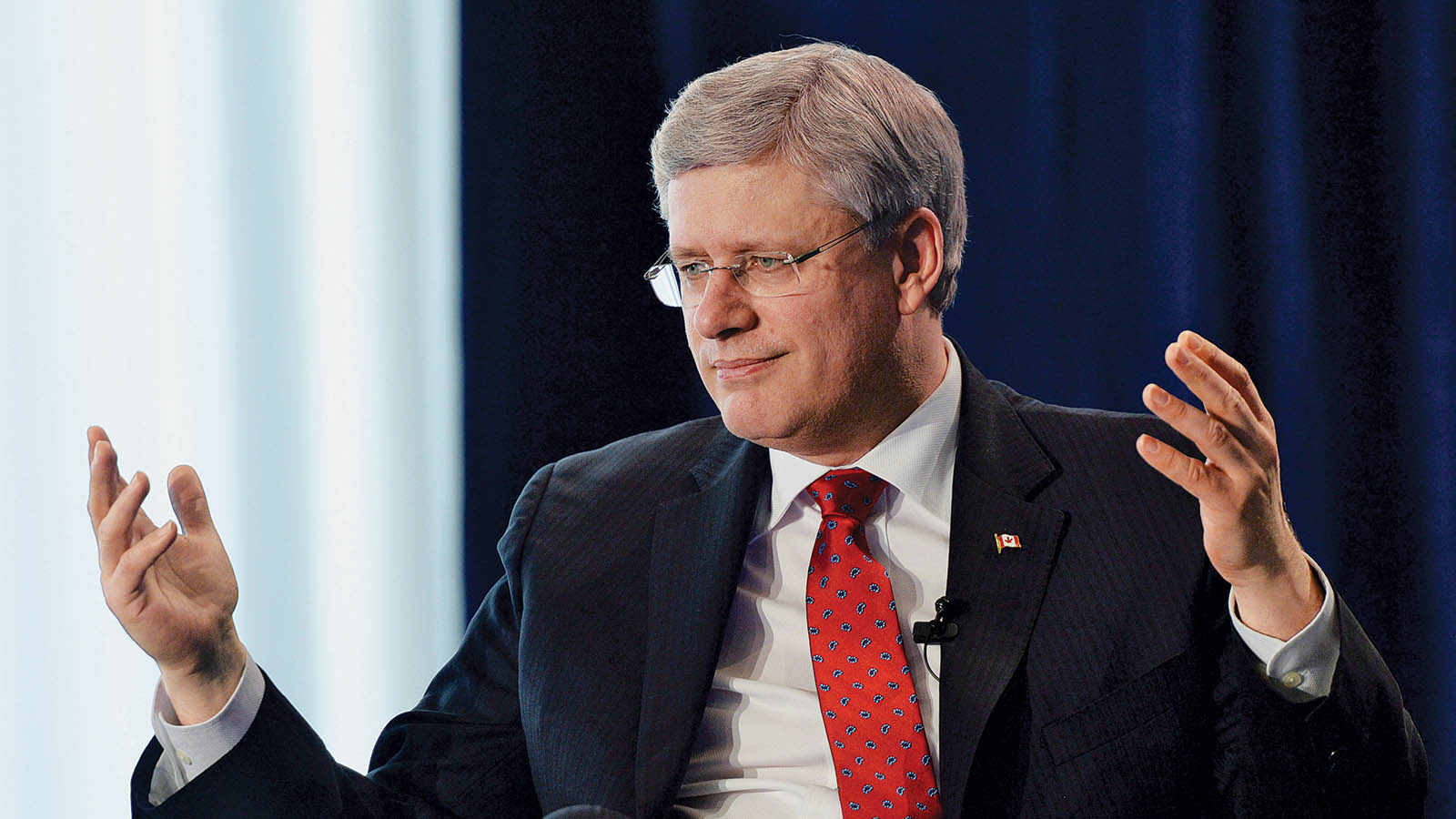It’s like watching a train wreck in slow motion. The Prime Minister of Canada is deliberately stirring up prejudice against one group of Canadians for one reason only: political advantage. The sad reality is that many Canadians and Quebecois seem to be vulnerable to embracing an anti-Muslim sentiment.
We are all appalled by the brutality of ISIS, with their voyeuristic killing of innocent victims. The tragic murder of two soldiers in Canada has added a sense of vulnerability inside our own country. Stephen Harper’s response is to declare that Canada is under attack by “global Jihadists” and introduce sweeping legislation giving new powers to CSIS.
The beating of the “war on terror” drums by Harper is a calculated move to shore up the Conservative election hopes. His strategy has resulted in an increase in the Tory polling numbers, but poses real risks of stirring up anti-Muslim and anti-immigrant sentiment across the country. While we haven’t yet experienced the kind of right-wing backlash seen in Europe, there is a real danger that such a dynamic could develop here.
We have many shameful instances of discrimination in Canada’s history: the treatment of First Nations, the Chinese Exclusion Act, the turning away of South Asian and Jewish migrants and even Ku Klux Klan activity. These acts have been made possible by casting groups of people as the “other” — somehow not part of our shared humanity. And that is the underlying feature of the growth of Islamophobia in our world.
Workers in Toronto have never been immune to the corrosive influences of racism and anti-Semitism. But labour has often risen to address that fact and challenge discrimination. The Toronto Joint Labour Committee on Human Rights was formed after the Second World War by Jewish and Black union activists. The Urban Alliance on Race Relations was founded thirty years ago. In the 1980s the Ontario Federation of Labour led a major public campaign entitled “Racism Hurts Everyone.” Since then unions have joined with community activists to push for human rights policies at work and in broader society to ensure that all Canadians feel welcome and included.
At this point in history we are called upon to specifically challenge Islamophobia. The fact is that our Muslim brothers and sisters have been made to feel defensive about their faith, and unsure of how their neighbours accept them. After 9/11, the dominant narrative of Conservatives and Republicans has been the so-called “clash of civilizations.” It has been most extreme in the U.S. and Europe, but the attempt of the Parti Quebecois to ban religious symbols in the public sector clearly sought to cynically differentiate Muslims from “mainstream” Quebec society.
The roots of today’s extremism can be traced back to interventions by the American-led forces in the Middle East, starting with arming the Mujahedeen in Afghanistan, the alliance with the despotic rulers of Saudi Arabia and continuing to the invasions of Iraq and Somalia, and unquestioning support for Israel’s occupation of Palestine. At the centre of this story is the politics of oil, along with suppression of progressive national movements. The flagrant abuse of power has set the stage for the reaction we see exhibited in such brutally violent forms.
Harper has moved Canada out of the role of international peacekeeper to that of armed belligerence. If the Conservatives are defeated this year, Canada can pursue a foreign policy more aligned with justice than corporate greed. In the meanwhile however, laws have been introduced to extend the reach of the security state into the lives of all Canadians. We know there will be no limits to how this will be misused given the record of repression on environmental, global justice and First Nations organizations.
The true values of Canada will be tested in these troubling times. How many voices will speak out to challenge prejudice or discrimination?
People of good will have a responsibility to build intentional relationships with our Muslim neighbours and co-workers. Learning from each other, building a culture of understanding, reaching out to those who are feeling marginalized, working to eliminate discrimination in all its forms — these are key steps to embracing our common humanity. We all need to work for the kind of future we want to share together as Canadians.



